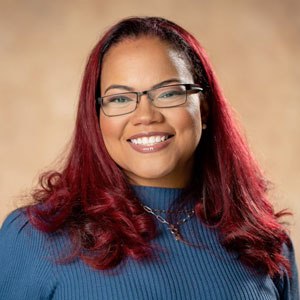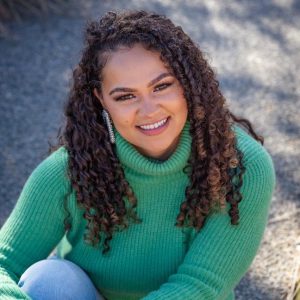 Sarah Reives-Houston has been named director of Behavioral Health Springboard. She succeeds Tara Bohley, who recently retired from UNC to pursue private practice full time.
Sarah Reives-Houston has been named director of Behavioral Health Springboard. She succeeds Tara Bohley, who recently retired from UNC to pursue private practice full time.
Since 2015, Reives-Houston has been an instructor and program evaluation specialist at N.C. Central University (NCCU), where she provided technical oversight of program evaluation and research projects. She also developed and facilitated training and curriculum materials focused on mental health, substance abuse, systems of care for individuals and families and developed all technical reports for state, federal and specialized accountability and reporting processes.
Reives-Houston’s professional development interests focus on recognizing, managing, and mitigating the impacts of trauma on client populations and service providers.
Reives-Houston, who has an MS in human development from NCCU and a Ph.D. in education from Capella University, is currently completing her PsyD in clinical psychology and trauma from California Southern University. She also holds a Master’s in Education from East Carolina University. She is certified as a family trauma specialist and as a child and adolescent trauma specialist.
She will officially start her new role on May 2.
New Mental Health First Aid Coordinator
 Alicia Freeman has been named coordinator of UNC-Chapel Hill’s Mental Health First Aid (MHFA) program, an initiative of the Behavioral Health Springboard.
Alicia Freeman has been named coordinator of UNC-Chapel Hill’s Mental Health First Aid (MHFA) program, an initiative of the Behavioral Health Springboard.
An MHFA instructor since 2019, Freeman joins the School from UNC Student Wellness, where she has worked as the program coordinator for alcohol and other drug prevention, mental health awareness, and stigma reduction.
Freeman was raised in the rural Native American community of Buckhead, N.C. and is a member of the Waccamaw Siouan Tribe. A licensed mental health counselor, Freeman’s passion for behavioral and mental health issues is deeply rooted in her life experiences and the health disparities faced by minority populations, specifically Native Americans. She takes special interest in social justice for underrepresented and marginalized groups.
Freeman earned a Master’s in Rehabilitation and Career Counseling and a graduate certificate in both substance abuse counseling and vocational evaluation from East Carolina University. Her experience also includes vocational services, clinical counseling, accessibility services, and collegiate wellness initiatives.

